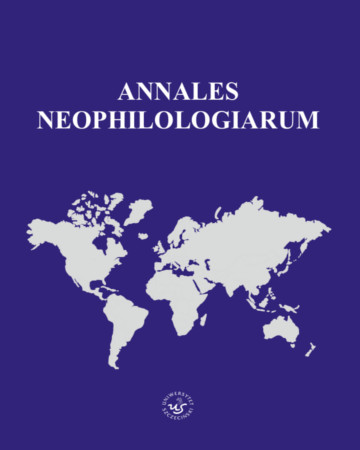| 1. | Bruner, Jérôme. Acts of meaning. Cambridge : Harvard University Press, 1990. |
| 2. | Capelle, Guy, Robert Menand. Le Nouveau Taxi 1. Paris: Hachette, 2009. |
| 3. | Capelle, Guy, Robert Menand. Le Nouveau Taxi 2. Paris: Hachette, 2009. |
| 4. | Conseil de l’Europe, Cadre européen commun de références pour les langues – apprendre, |
| 5. | enseigner, évaluer. Paris : Les Editions Didier, 2001. |
| 6. | Creswell, John.W. Projektowanie badań naukowych. Metody jakościowe, ilościowe i mieszane. |
| 7. | Tłum. Joanna Gilewicz. Kraków: Wydawnictwo Uniwersytetu Jagiellońskiego, 2013. |
| 8. | Goddard, Cliff, Anna Wierzbicka. „Semantic primes and cultural scripts in language learning and intercultural communication”. W : Applied Cultural Linguistics: Implications for second language learning and intercultural communication, red. Gary B. Palmer, Farzad Sharifian, 105–124. Amsterdam: John Benjamin, 2007. |
| 9. | Koselak, Arkadiusz. „La sémantique naturelle d’Anna Wierzbicka et les enjeux interculturel”. Questions de communication 4 (2003). Acces 28.12.2016. DOI: 10.4000/ https://journals.openedition.org/questionsdecommunication/4611. |
| 10. | Poisson-Quinton, Sylvie, Évelyne Siréjols. Amical 1. Paris: Cle International, 2011. |
| 11. | Poisson-Quinton, Sylvie, Évelyne Siréjols. Amical 2. Paris: Cle International, 2011. |
| 12. | Prechtl, Peter. Wprowadzenie do filozofii języka. Tłum. Józef Bremer. Kraków: Wydawnictwo WAM. |
| 13. | Wierzbicka, Anna. Słowa klucze. Różne języki – różne kultury. Tłum. Izabela Duraj-Nowosielska. Warszawa: Wydawnictwo Uniwersytetu Warszawskiego, 2007. |
| 14. | Wierzbicka, Anna. Prof. Dr hab. Anna Wierzbicka: moja teza jest prowokacyjna. Dostęp 06.02.2016, http://naukawpolsce.pap.pl/aktualnosci/news,378524,prof-dr-hab-anna-wierzbicka-moja-teza-jest-prowokacyjna.html. |




